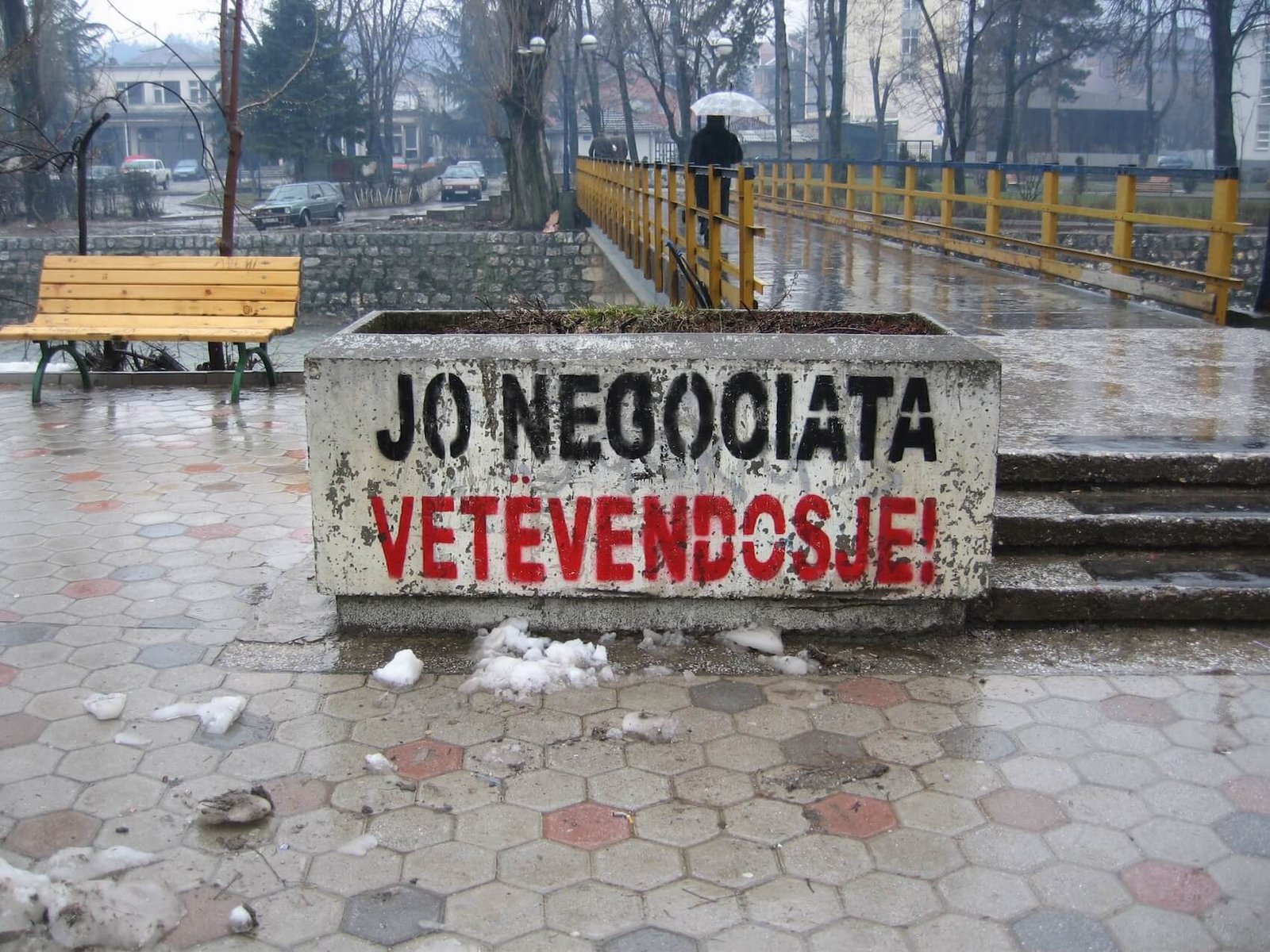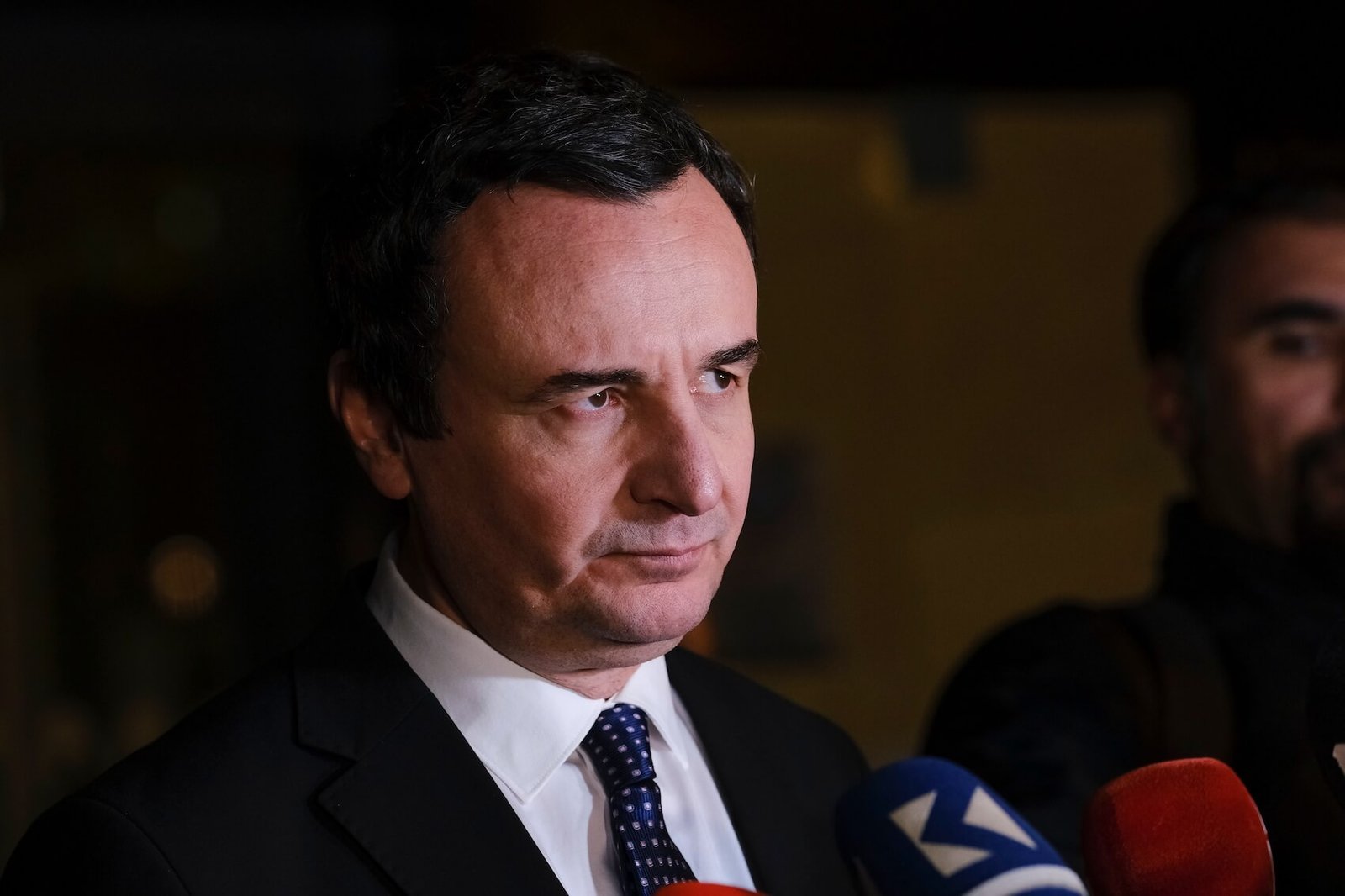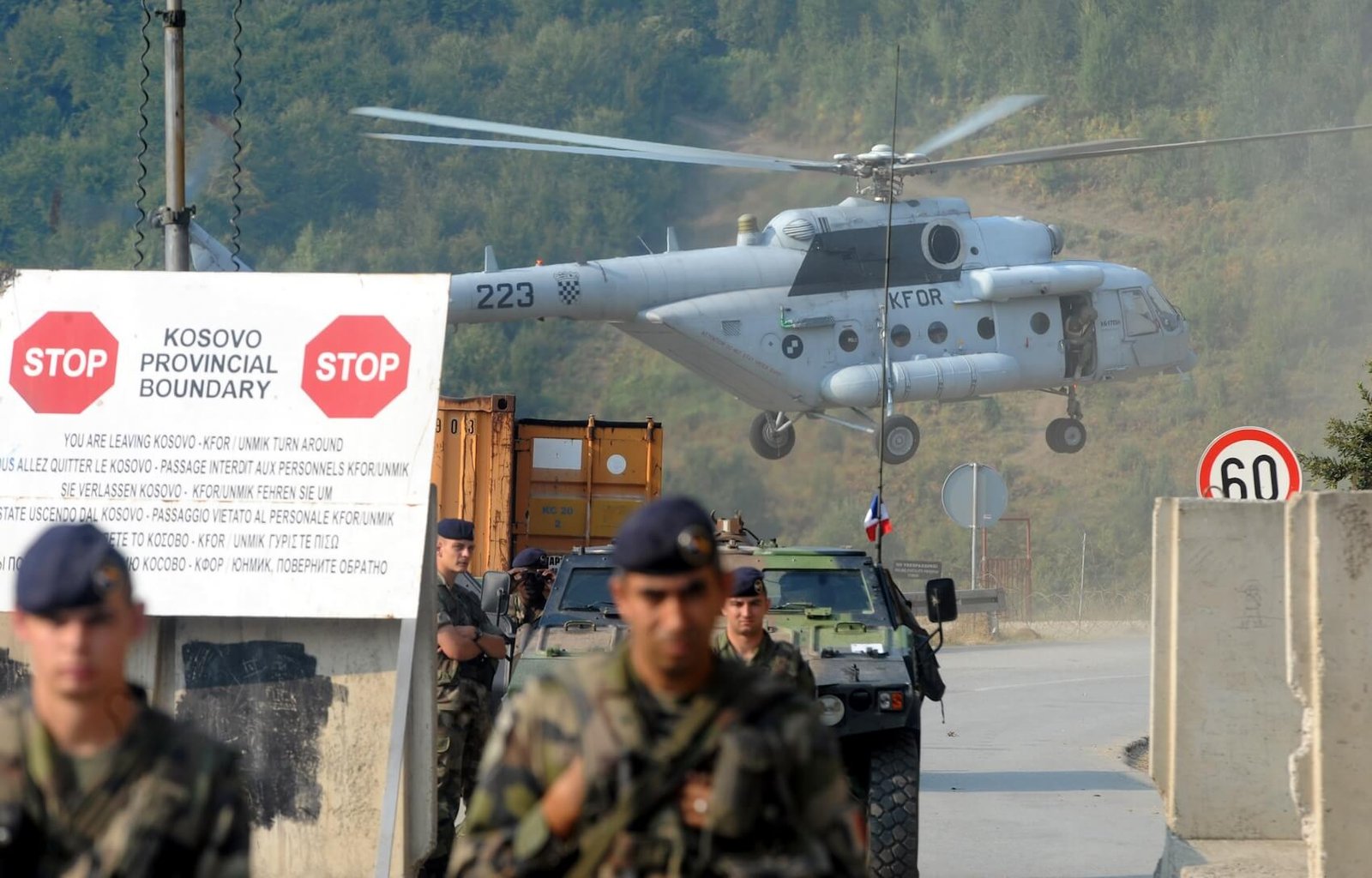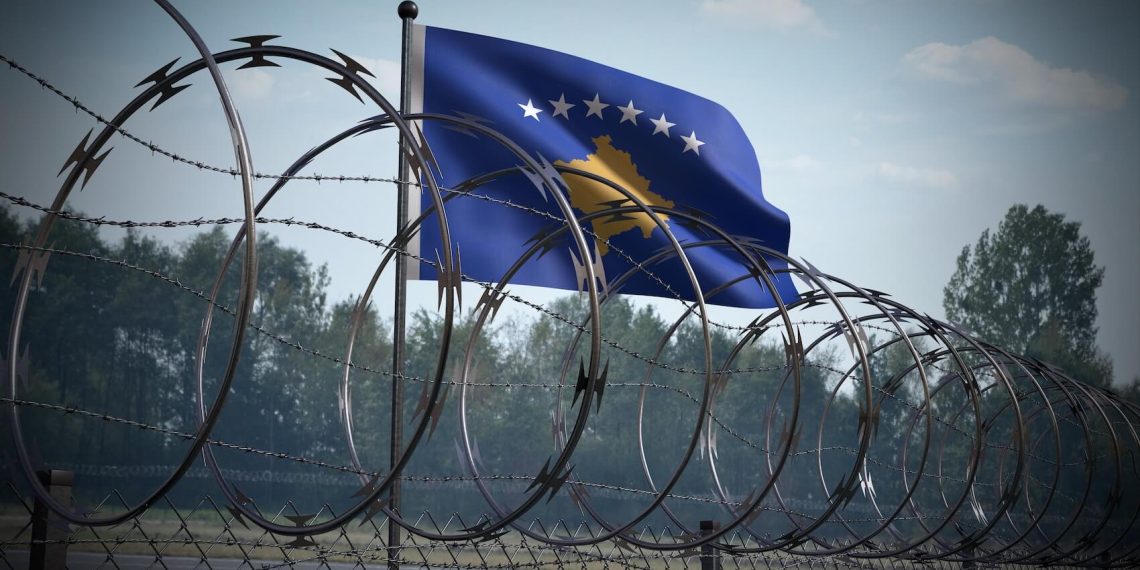As Kosovo heads into a decisive election, Dr. Avdi Smajljaj warns of its significance for the country’s democratic trajectory. “The upcoming elections this Sunday will be crucial in determining the future of democracy in Kosovo,” he explains, emphasizing the risk of increasing authoritarian tendencies. Meanwhile, tensions with the EU and US complicate Kosovo’s international standing. “Kosovo’s statehood remains heavily dependent on US support,” he adds, particularly with the uncertainty of second Trump presidency. With growing populism and strained foreign relations, Kosovo’s future hangs in the balance, making this election a turning point for its domestic and international course.
Interview by Selcuk Gultasli
In an insightful discussion with the European Center for Populism Studies (ECPS), Dr. Avdi Smajljaj, a lecturer in Political Science and International Relations at Epoka University, Albania, highlights the significance of Kosovo’s upcoming elections, its evolving relationship with the European Union, and the critical role of US support—particularly in light of a potential second Trump presidency. With Kosovo still in the process of democratic consolidation, the elections this Sunday will be a pivotal moment. “The upcoming elections this Sunday will be crucial in determining the future of democracy in Kosovo. If opposition parties manage to return to power, either alone or through coalitions, this could help prevent further steps toward authoritarianism,” Dr. Smajljaj explains.
A key player in Kosovo’s current political landscape is Vetëvendosje, the ruling party, which has transitioned from an anti-establishment movement to the dominant force in government. Since gaining power, Vetëvendosje has maintained a populist rhetoric that emphasizes anti-corruption, sovereignty, and resistance to foreign interference. However, Dr. Smajljaj notes that the party has also consolidated its control over state institutions, mirroring some of the very practices it once opposed. “The government has increasingly relied on ethno-nationalist mobilization, particularly in northern Kosovo, to maintain public support despite governance failures,” he explains. The party’s initial promises of justice, meritocracy, and institutional reform have been overshadowed by its own efforts to replace existing officials with loyalists, raising concerns about democratic backsliding.
Vetëvendosje’s approach has also influenced Kosovo’s relations with international actors, particularly its stance toward the EU and US. While the government officially supports European integration, its unilateral actions—especially in northern Kosovo—have drawn criticism from both Brussels and Washington. “The Kosovo government has taken what it describes as unilateral actions, leading to diplomatic consequences,” Dr. Smajljaj states. These tensions have resulted in EU sanctions and strained relations with the Biden administration, fueling speculation about how a second Trump presidency might approach Vetëvendosje’s governance style. With populism shaping both domestic politics and foreign policy, the party’s future role will be a critical factor in determining Kosovo’s stability and international standing.
Beyond domestic concerns, Kosovo’s international standing remains highly dependent on the United States, which has historically been its most influential ally. However, a second Trump administration could alter the dynamics of US engagement in the Balkans. “Kosovo’s statehood remains heavily dependent on US support… It remains heavily dependent on increasing the number of recognitions, heavily dependent on possible membership in NATO, and in EU membership as well,” he states. US troops within KFOR serve as the primary security guarantee in the region, and any change in American priorities could have serious consequences. “If there were a decision to minimize US troops in Kosovo or to withdraw them, this would be bad news for the prosperity of Kosovo as a state,” he warns.
Dr. Smajljaj also reflects on past US diplomatic efforts, particularly under the Trump administration, which proposed alternative approaches to resolving the Kosovo-Serbia dispute. “Just before Trump left office, the Washington Agreement was signed, but this agreement was completely ignored by the new government in Kosovo,” he notes. There was also discussion of a controversial land swap deal between Kosovo and Serbia, which, according to some reports, could have influenced Russia and China’s stance on Kosovo’s UN membership. With Trump’s unpredictability and "America First" approach, a second Trump term could bring either new diplomatic strategies or reduced engagement, potentially leaving Kosovo in a precarious position.
At the same time, Kosovo’s relationship with the European Union remains strained. While Kosovo officially supports EU integration, tensions with Brussels and dissatisfaction with the EU-facilitated dialogue process have led to what Dr. Smajljaj calls “implicit Euroscepticism.” “Currently, Kosovo is under sanctions from the European Union, and the United States has consistently blamed the Kosovo government for unilateral actions,” he explains. With both the US and EU at crossroads in their foreign policy approaches, Kosovo faces an uncertain future, making the upcoming elections and potential shifts in global politics more consequential than ever.
In this interview, Dr. Smajljaj provides a critical analysis of Kosovo’s political landscape, the rise of populism, and the uncertain role of international actors, particularly in the face of shifting US policies under a potential second Trump presidency.

Here is the transcription of the interview with Dr. Avdi Smajljaj with some edits.
Populism in Kosovo: A Persistent Force Since the 1990s Democratic Transition
Professor Smajljaj, thank you very much for joining our interview series. Let me start right away with the first question: How has populism shaped political discourse in Kosovo, and which parties or leaders have utilized populist rhetoric most effectively?
Dr. Avdi Smajljaj: Actually, a dose of populism has almost always been present since the introduction of pluralism and democracy in the 1990s. However, it was a sort of soft populism, mostly found in the rhetoric of politicians trying to mobilize people through specific words and expressions.
More recently, since 2019 and especially in 2021, one of the major parties has shifted from this soft populism to a much harder form. This transformation is evident in its strong anti-establishment stance, which is a key characteristic of hard populism. One of the main slogans of the party was that they were going to build the "Third Republic," referring to the consecutive developments of the French Revolution, where one republic replaced another. This idea aimed to create a new establishment in Kosovo while also dividing society into two groups, another defining feature of populism—the "corrupt elite" versus the "good people."
Another feature of this party is that its leader, associated with the Lëvizja Vetëvendosje (Self-Determination Movement), initially hesitated to call it a party. They claimed to be a movement, positioning themselves as a social movement rather than a political party. However, they are indeed a political party, as they contest elections and seek governmental power.
Regarding ideology, if we categorize populism into left and right, this movement incorporates elements of leftist ideology, but it is mostly a mixed form of populism. On the leftist side, they have pursued policies related to redistribution, though at a relatively low level. For example, they implemented social policies such as small monthly payments for children, starting at €10 and later increasing to €20. Additionally, they provided financial support for mothers who gave birth. Although these measures gained them considerable public support, their primary appeal stemmed from their strong anti-establishment stance.
The party also initially promoted an ethno-nationalist agenda, advocating for the creation of a unified Albanian state encompassing Kosovo, Albania, Macedonia, and other regions with Albanian populations. Furthermore, they were strongly opposed to the role of the international community in Kosovo. However, Kosovo’s statehood relied significantly on international involvement, given its legal status and the complexities of the Yugoslav break-up. Despite this, due to their ethno-nationalist ideology, they rejected such external influence.
Since coming to power—now almost completing four years in office—they have somewhat toned down their ethno-nationalist rhetoric. However, actions taken in northern Kosovo, where the government still struggles to assert its authority, have further fueled ethnic nationalism. These actions have also hindered efforts to integrate the Serbian community in northern Kosovo into state institutions and recognize Kosovo’s authority. In many ways, these policies align with the ethno-nationalist ideology that has defined the Self-Determination Movement for a long time.
Rising Euroscepticism Among the Masses
How does Vetëvendosje’s populism differ from other populist movements in the Western Balkans and Europe, particularly in terms of its nationalist and leftist ideological blend?
Dr. Avdi Smajljaj: If we first examine populism in the Western Balkans, I think populism in this region is still primarily at the level of rhetoric. Excluding, perhaps, the case of Republika Srpska in Bosnia, where Milorad Dodik’s political party is also an anti-establishment party that seeks secession from Bosnia—either to become an independent state or to join Serbia—populism in other parts of the Western Balkans remains largely rhetorical. At various levels, we see populism as a strategy for gaining votes rather than a direct challenge to the establishment.
Unlike in some other cases, populist movements in the Western Balkans are not actively fighting against institutions such as prosecutors’ offices or courts, nor are they attempting to blur the separation of powers. However, as Kosovo is still a developing democracy, these institutions remain in the process of consolidation. What we are currently witnessing in Kosovo is an attempt by the government to exert greater control over these institutions.
When I refer to "Valence Populism," I mean the kind of populism that focuses on fighting corruption and state capture. One of the main slogans of the ruling party was that the state had been captured by the opposition parties, which governed for around 20 years, and that they came to power to combat this. However, in practice, they are engaging in similar behaviors—removing existing officials and replacing them with their own loyalists.
In relation to populism in Western Europe, which is often linked to xenophobia—particularly anti-migrant sentiment—this is not an issue in Kosovo. We are not overwhelmed by migrants, though Kosovo may occasionally serve as a transit route. Migration is not a major political issue requiring attention in the way it is in Western Europe.
Regarding populism and Euroscepticism, which is a significant issue in Europe, I would say that there is a degree of hidden Euroscepticism in Kosovo. Why hidden? If we examine Eurobarometer data, which consistently measures public attitudes toward the EU, Kosovo ranks highest in support of European integration. However, the current government, through its ethno-nationalist ideology and its actions in northern Kosovo over the past four years to extend state authority, has contributed to a form of implicit Euroscepticism.
This sentiment is particularly tied to the role of the European Union in the dialogue between Serbia and Kosovo, with the EU often being accused of taking sides—favoring Serbia rather than maintaining neutrality or supporting Kosovo. As a result, there is a growing dose of Euroscepticism at the masses’ level. However, I would still classify it as implicit, because no party dares to openly oppose EU membership.
Vetëvendosje’s Populist Strategy: Electoral Success and Governance Contradictions

To what extent has populist rhetoric contributed to the electoral success of parties like Vetëvendosje, and how has their governance aligned with or diverged from their populist promises?
Dr. Avdi Smajljaj: Populist rhetoric has played a significant role, and the most extreme example was the polarization of society into two highly opposed groups—Vetëvendosje on one side and all other parties grouped together on the other. Their rhetoric suggested that the previous governments had completely destroyed the state over the past 20 years. However, this was not entirely true, as during that period, Kosovo gained its freedom and established statehood, which it did not have before.
Nonetheless, the narrative focused on the claim that institutions had been captured by previous ruling parties, that corruption was rampant, and that organized crime was deeply entrenched. Through this rhetoric, Vetëvendosje managed to gain significant popular support. Kosovo has a multi-party system with a single electoral district and a proportional system, which usually makes it difficult for any single party to govern alone. However, in 2021, against expectations, Vetëvendosje was able to defeat all other previous ruling parties, primarily due to its strong polarization strategy—portraying itself as the force for good and the opposition as corrupt and evil.
Vetëvendosje campaigned on promises of justice, meritocracy, the rule of law, and equal opportunities for all. A key aspect of their platform was employment reform, claiming that, under previous governments, securing a job in public institutions or state-owned enterprises required party affiliation. These promises resonated with voters, allowing Vetëvendosje to win more than 50% of the vote—an extraordinary achievement in a proportional multi-party system.
However, after coming to power, their actions deviated from these promises. If we refer to Jan-Werner Müller’s theory on how populists "colonize" institutions upon gaining power, Vetëvendosje followed a similar pattern. They used all possible legal means, including legislative amendments, to place their own people in key institutional positions—essentially engaging in the same practices they had previously criticized. This has disappointed many of their supporters, who had voted for them based on their pledges to bring justice, equal opportunities, and institutional reform.
To compensate for their shortcomings in fulfilling campaign promises, the government has increasingly relied on ethno-nationalist mobilization, particularly in northern Kosovo. By invoking wartime experiences between Albanians and Serbs, they have sought to maintain public support despite governance failures. However, rather than breaking from past practices, their governance has, in many ways, mirrored the actions of previous ruling parties.
Sunday’s Elections Will Be a Defining Moment for Kosovo’s Democratic Future
Your article, titled “Populism in a Never-Ending and Multiple System Transformation in Kosovo: The Case of Vetëvendosje," argues that Kosovo’s incomplete democratic transformation has provided fertile ground for populism. In what ways has Vetëvendosje capitalized on this, and do you see any indications that it may shift towards authoritarianism as a governing party?
Dr. Avdi Smajljaj: As a never-ending transition—yes, I would say the entire Western Balkans is experiencing this process. The Western Balkans started transitioning in the early 1990s with the fall of the Berlin Wall, and now we have entered the fourth decade of democratization.
In Kosovo, the process began a bit later due to the war. However, we are now in the third decade of democratization, following the country’s liberation. During this period, several studies have discussed a regression toward authoritarianism, and some argue that we are witnessing a transition back to authoritarian rule. Across the Western Balkans, we see the dominance of single-party rule. For example, Serbia has a dominant party system, and the same trend can now be observed in Albania.
Currently, the only factor still maintaining multi-party systems in the region is the presence of ethnic parties. These parties, representing specific ethnic groups, remain significant in preserving pluralism. In the case of Kosovo, the upcoming elections this Sunday will be crucial in determining the future of its democracy. If opposition parties manage to return to power, either alone or through coalitions, this could help prevent further steps toward authoritarianism.
Additionally, as Kosovo is a young democracy and not yet fully consolidated, its institutions are fragile and weak, making them highly vulnerable to authoritarian tendencies—especially when faced with a government that has more than 50% of the vote. This, combined with the country’s political culture and its historical lack of democratic governance, has contributed to the persistence of authoritarian political values within society.
For example, during the current electoral campaign, there have been reports of people referring to the leader of Vetëvendosje, Albin Kurti, as a "father" figure. Such rhetoric is an authoritarian signal. Moreover, while Kosovo’s institutions were already weak—partly because they had been captured by previous ruling parties—this has created an opportunity for the current government to consolidate its control over institutions.
This institutional takeover has been evident in the restructuring of governing boards in public companies, changes across all ministries where possible, and amendments to the law on civil servants. These legal changes facilitate the replacement of existing civil servants with individuals loyal to the ruling party. Additionally, there has been an open attack by the Prime Minister on the judiciary and prosecution.
For instance, a corruption case was under investigation in one of the ministries, and the prosecutor sent an invitation for the Prime Minister to be interviewed as a witness. However, he refused to comply, stating that the prosecutor could come to his office at a designated time instead. This incident is just one of many indicators of the government’s tendency to undermine or disregard the separation of powers, which is essential for democracy to function properly.
Democracy in Kosovo and the broader Western Balkans remains fragile and susceptible to regression. It still heavily relies on international support. However, with ongoing changes in the US administration and the EU facing uncertainty, if external support for democratization in the region declines, it will provide further opportunities for populist parties to reinforce authoritarian regimes.
Kosovo’s Populist Government Is Undermining Its EU Future

How do populist movements in Kosovo interact with the European Union and other international actors? Does populism present a challenge to Kosovo’s European integration?
Dr. Avdi Smajljaj: I would say yes, it presents a challenge in relation to the European Union and also to the US, which are the two main sponsors of democratization in the region and in Kosovo as well.
The current government has mostly dealt with them with a sovereignist attitude, claiming that Kosovo is a sovereign country while downplaying the role of the international community in building the state of Kosovo. This has led to unilateral actions, particularly in the northern part of Kosovo, which have significantly affected relations between the Kosovo government, the European Union, and the United States. At one point, the European Union even imposed sanctions on Kosovo due to these actions.
Of course, it is well known that the Serbian government often uses the Serbian community in Kosovo to prevent their integration into Kosovo’s institutions, effectively trying to sabotage Kosovo’s statehood. However, the international community has maintained that such issues should be resolved through dialogue and with their involvement. Instead, the Kosovo government has taken what it describes as unilateral actions, leading to diplomatic consequences.
As a result, Kosovo is currently under sanctions from the European Union, and the United States has consistently criticized the Kosovo government for these actions. This has led to repeated statements by US special representatives for the region, expressing that such actions complicate US efforts to advocate for Kosovo’s international recognition. The government seems to have ignored the fact that Kosovo is recognized by fewer than two-thirds of UN member states—approximately 100 to 117, though some recognitions have been withdrawn or frozen, making the exact number unclear. However, this number is not sufficient for Kosovo to become a UN member, which is a crucial step for consolidating its statehood at the international level. Without US and EU support, achieving this goal would be nearly impossible. While other countries around the world support Kosovo, they do not have the influence that the US and EU have in convincing other states to recognize Kosovo. This recognition is vital for Kosovo’s international legitimacy and statehood.
Furthermore, such a populist government delays the process of European integration. The main criteria for joining the European Union include democracy, separation of powers, and strong institutions. However, if there is a tendency to capture institutions, weaken the state, and blur the lines between the legislative, executive, and judicial branches—particularly between the executive and judiciary—this represents a setback in meeting the EU’s membership criteria.
Declaratively, the government tries to appear active in the EU integration process. For example, when the EU introduced the Growth Plan for the Western Balkans, the Kosovo government quickly submitted its reform agenda. However, if we look at actual developments, there are actions being taken that undermine progress in meeting the EU’s accession requirements.
The Second Trump Presidency Could Leave Kosovo in a Precarious Position

Given Donald Trump’s "America First" approach and past skepticism towards US commitments abroad, how do you foresee a second Trump presidency impacting Kosovo’s relationship with the US, particularly in terms of security guarantees and diplomatic support?
Dr. Avdi Smajljaj: I would say that the Trump administration is still consolidating itself in terms of priorities at the global level. As we see now, new ideas are emerging, and issues that were previously top priorities are being revised—such as the role of USAID, for example. USAID has been one of the main supporters of the democratization process in the region.
I would say it is still a bit early to predict exactly how a second Trump presidency would approach the region, including Kosovo. We are entering a highly unpredictable period. However, what is clear for now is that Kosovo’s statehood remains heavily dependent on US support. This includes increasing the number of recognitions for Kosovo’s independence and potential membership in NATO. US influence also plays a crucial role in Kosovo’s EU membership prospects, given the relationship between the US and the EU, and Washington’s ability to encourage its allies to support Kosovo’s integration.
Furthermore, US troops stationed in Kosovo as part of KFOR are the primary guarantors of security in the region. Their presence plays a crucial role in preventing any potential conflict, particularly between Kosovo and Serbia. Serbia continues to challenge Kosovo’s sovereignty, particularly in the northern part of the country, by leveraging the loyalty of local Serbs to Belgrade.
If, for instance, a decision were made to reduce or withdraw US troops from Kosovo, or if Kosovo were no longer a priority for the US government, this would be very bad news for Kosovo’s stability and prospects as a state. While there are other international partners willing to assist, they do not have the same capacity as the US.
The role of the US in NATO’s intervention to stop ethnic cleansing in 1999 was vital. Additionally, US support was crucial in giving Kosovo the green light to declare independence and encouraging many states worldwide to recognize it. The highest number of recognitions for Kosovo’s independence came as a result of US diplomatic efforts. If Kosovo is no longer among the priorities of the US, this would create a bleak future for the long-term prospects of Kosovo as a state.
Kosovo’s Statehood Remains Heavily Dependent on US Support
And lastly, Professor Smajljaj, as you mentioned, Kosovo has relied heavily on strong U.S. backing in its international recognition efforts and dialogue with Serbia. If Trump were to reduce US engagement in the Balkans or push for a different diplomatic strategy, what potential risks and opportunities might arise for Kosovo’s international standing and regional stability?
Dr. Avdi Smajljaj: As I have already said, Kosovo’s statehood remains heavily dependent on US support. Currently, there is an agreement known as the Franco-German plan, along with an annex to this plan, which Kosovo and Serbia agreed upon in Brussels and Ohrid as a potential solution to the ongoing dispute. Up until now, the US has supported this agreement, particularly under the Democratic administration when it was reached. However, the agreement has not yet been fully implemented by either party, with both sides often stating that they have accepted it but have not formally signed it.
At present, this agreement serves as the primary framework for both the European Union and the US in resolving the Kosovo-Serbia issue. One of the key elements of the agreement is the creation of an association of Serbian municipalities in Kosovo, which, under the Brussels Agreement, would grant a degree of self-management to the Serbian community. However, the exact definition of "self-management" remains to be determined within the statute of this association.
With the new US administration, I believe it is still somewhat early to determine the direction of its policies. The government is still in the process of consolidating itself and is likely reviewing various international engagements. I hope that in this revision process, Kosovo remains a priority for the US government because American support is vital—not only for Kosovo’s international recognition and diplomatic efforts but also for preventing potential conflicts in the region. US backing is also crucial for the consolidation of Kosovo’s statehood, increasing the number of recognitions, gaining membership in international organizations, and, if possible, securing a seat at the United Nations. If Kosovo were to achieve UN membership, it would no longer be viewed as a contested state by a significant number of countries, thereby fully legitimizing its statehood on the international stage.
US support has played a key role in Kosovo’s diplomatic advancements. For instance, just before Trump left office in his first administration, the Washington Agreement was signed. However, this agreement was completely ignored by the new government in Kosovo. One of its outcomes was the recognition of Kosovo by Israel, marking a significant diplomatic achievement. While the Washington Agreement did not propose a final settlement, it was designed to enhance dialogue between Kosovo and Serbia, potentially paving the way for a comprehensive resolution. It remains to be seen whether this agreement will be revisited in the future.
Additionally, during the Trump administration, there was also discussion of a potential land swap proposal, involving the exchange of the northern part of Kosovo for areas in the Presheva Valley, where Albanians reside. This proposal was ultimately dismissed by the current government, but at the time, there was speculation that such a deal could have persuaded Russia and China—two permanent members of the UN Security Council—to support Kosovo’s UN membership. However, there was also strong opposition, with some labeling the proposal as a betrayal, arguing that it amounted to giving land to Serbia.
It remains uncertain whether such proposals could resurface under a second Trump administration, or if entirely new options might emerge. As I have already mentioned, we are in a period of highly unpredictable developments, making it very difficult to foresee the exact direction that US policy toward Kosovo and the Balkans might take.


